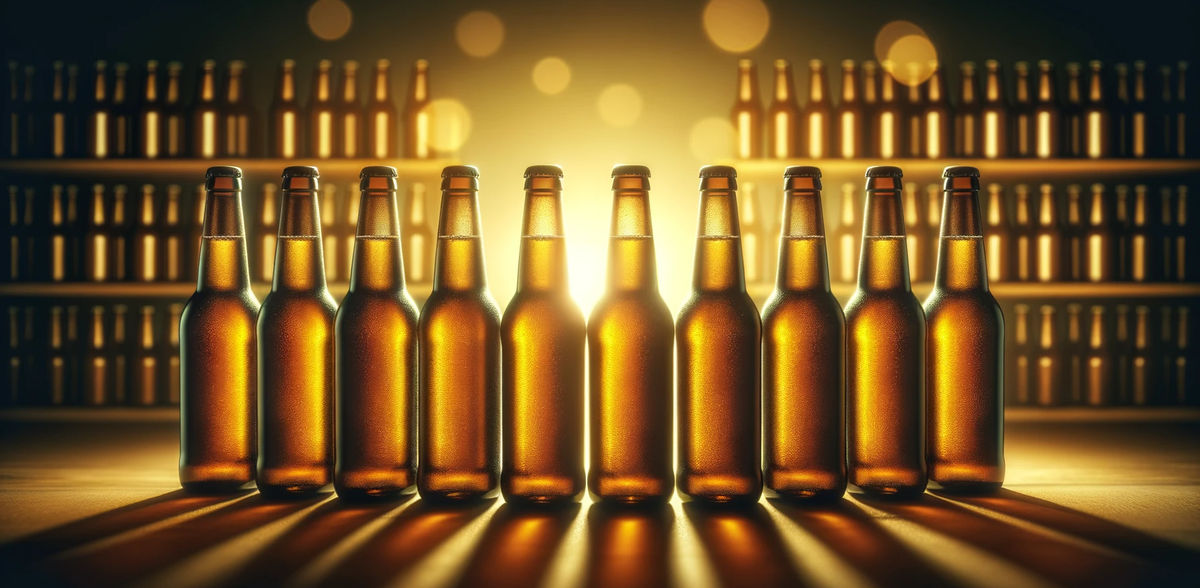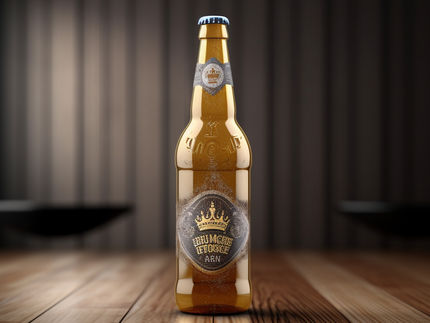Lawsuit over beer label: Must a brewer brew himself?
Advertisement
A brew that doesn't brew at all: A court in Munich is looking into the question of what information is permitted on beer labels - and describes that of a beverage retailer as misleading, at least in part.
Is a beer brand allowed to be called Wunderbraeu even though it doesn't brew itself? And is it allowed to advertise the beer on the bottle as CO2-positive without much explanation? These and other questions occupied the Munich Regional Court on Wednesday, and in the end the answer could be partly, partly. At least that is what the preliminary assessments made by the presiding judge at the hearing suggest.
Specifically, the Central Office for Combating Unfair Competition is suing WunderDrinks, a Munich-based company that sells beer under the Wunderbraeu brand. Several points bother them, starting with the name Wunderbraeu. This suggests that the company brews its own beer, since Bräu means brewer or brewery, at least in Munich.
However, WunderDrinks merely has the beer brewed. On this point, however, the plaintiff's chances are poor. The judge assumes - according to the preliminary assessment - that the designation is an ambiguous fantasy designation. WunderDrinks had argued similarly.
The head office has better chances elsewhere. It bothers at the address indication Wunderbraeu, hop road 8 in Munich. This suggests that the beer is produced in Munich, but there is only one mailbox there, said the plaintiff's lawyer, who therefore speaks of a "phantom brewery". The beer itself is produced on behalf of WunderDrinks by a brewery in Chiemgau, among others. A lawyer of the enterprise contradicted admittedly: Even with private labels of supermarkets, the address of the retailer and not the place of production is on the label. However, the court did not seem to be convinced: the fact that the beer name Wunderbraeu and not the name of the WunderDrinks company was printed on the label with the address was misleading, according to the judge's preliminary assessment.
And also with the statement CO2-positive it looks rather badly for miracle Drinks. The court lacks a more detailed explanation of what is meant by this. According to a preliminary assessment, this point could also be inadmissible. The court will announce its decision on December 8.
Note: This article has been translated using a computer system without human intervention. LUMITOS offers these automatic translations to present a wider range of current news. Since this article has been translated with automatic translation, it is possible that it contains errors in vocabulary, syntax or grammar. The original article in German can be found here.
Most read news
Other news from the department business & finance

Get the food & beverage industry in your inbox
By submitting this form you agree that LUMITOS AG will send you the newsletter(s) selected above by email. Your data will not be passed on to third parties. Your data will be stored and processed in accordance with our data protection regulations. LUMITOS may contact you by email for the purpose of advertising or market and opinion surveys. You can revoke your consent at any time without giving reasons to LUMITOS AG, Ernst-Augustin-Str. 2, 12489 Berlin, Germany or by e-mail at revoke@lumitos.com with effect for the future. In addition, each email contains a link to unsubscribe from the corresponding newsletter.






























































